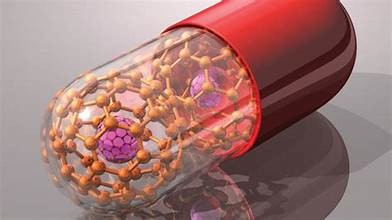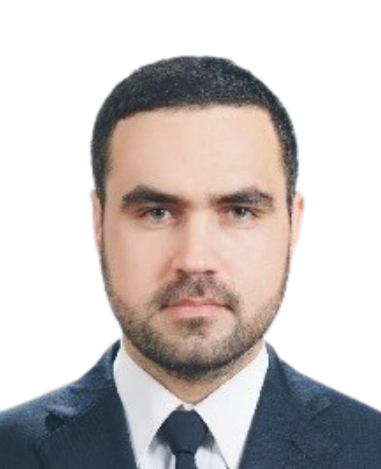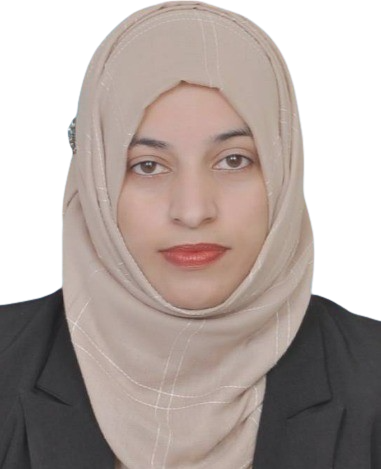Workshop - 4
Hands-on Workshop on Nanomedicine Preparation & Characterization Techniques

INTRODUCTION
Nanomedicine is reshaping the future of healthcare enabling precise drug delivery, enhancing therapeutic outcomes, and opening doors to next-generation diagnostics. Its market is expanding rapidly, with applications spanning oncology, infectious diseases, regenerative medicine, and personalized therapy. This full-day interactive workshop is designed to blend scientific insight with real-world practice. Participants will not only learn about different nanoparticle preparation techniques but will also get hands-on experience ,from creating nanoparticles to characterizing them using advanced instrumentation like the Zeta Sizer.
Objectives
- Understand core principles of nanomedicine and its clinical & commercial potential.
- Gain hands-on training in multiple nanoparticle preparation techniques.
- Learn sample preparation for nanoparticle characterization using a Zeta Sizer, UV-Spectroscopy and Optical microscope.
Target Audience
- Graduate and postgraduate students in biotechnology, nanotechnology, pharmacy, materials science, and biomedical engineering.
- Researchers & faculty interested in nanotechnology-based projects.
- Industry professionals in formulation development, R&D, or QC.
- Clinicians & translational scientists exploring therapeutic nanomedicine applications.
Why this Workshop
Nanomedicine is no longer a niche, it’s a cornerstone of modern therapeutics. Yet, many researchers lack access to hands-on training in nanoparticle formulation and characterization. This workshop bridges that gap, equipping participants with practical skills and insights to accelerate their research and translational goals.
Workshop Structure
Session 1: Pre-Assessment & Participant Profiling (0.5 Hour)
Activity: MCQ quiz & short survey to assess baseline knowledge.
Session 2: Introduction to Nanomedicine (0.5 Hour)
Lecture: “Nanomedicine: Concepts, Clinical Applications & Global Trends”
- History & breakthroughs in nanomedicine
- Current clinical uses & FDA-approved products
- Market potential & regulatory landscape
Session 3: Nanoparticle Preparation: Theory & Hands-on (2 Hours)
Demonstration
Lecture + Practical Demo: “Formulation Strategies in Nanomedicine”
Participants will learn and observe the preparation of:
- Preparation of Nanoparticles via Nanoprecipitation (Using Peristaltic pump injector-assisted method)
- Preparation of Nanoparticles via Emulsification (Using Probe Sonicator)
- Preparation of Metallic Nanoparticles via Chemical Synthesis
- Preparation of Metallic Nanoparticles via Green Synthesis
- Microparticles Preparation via Homogenization Method
Alongside each technique, a live demonstration will be conducted, with participants actively involved in the preparation process.
Session 4: Nanoparticle Characterization (2 Hours)
- Understanding Zeta Sizer components & working principle
- Sample preparation for accurate particle size, PDI & zeta potential analysis
- Inorganic Nanoparticles confirmation by UV-Spectroscopy
- Live measurement run with participant involvement
- Interpreting results
Session 6: Future of Nanomedicine (0.5 Hour)
Lecture & Interactive Discussion: “Next-Generation Nanomedicine”
- Smart & stimuli-responsive nanoparticles
- Theranostic applications & personalized nanomedicine
- Nanorobotics in precision drug delivery
- Funding & commercialization opportunities
Session 7: Post-Assessment & Feedback (0.5 Hour)
- MCQ evaluation to measure knowledge gain
- Participant reflections & suggestions for future workshops
Learning Outcomes
By the end of this workshop, participants will:
- Master at least four nanoparticle preparation techniques.
- Operate a Zeta Sizer for particle size and surface charge characterization.
- Be ready to apply nanotechnology methods in academic, clinical, and industrial settings.

MUHAMMAD NAEEM (Ph.D.)
Tenured Associate Professor,
Department of Biological Sciences, (NUMS)
Dr. Muhammad Naeem is a specialist in Pharmaceutical Nanotechnology and Nanomedicine with a Ph.D. in Pharmacy from Pusan National University, South Korea. His research focuses on biomaterial-based drug delivery systems for wound healing, inflammatory, and cancer-related diseases, with expertise in nano/microfabrication, disease models, and advanced analytical techniques. He has authored over 30 publications (h-index 22) and received international recognition, including the Eudragit® Award 2014. Since joining NUMS in 2018, he has led multiple funded research projects, supervised graduate students, and heads the Nanomedicine Section, where he continues to advance biomedical innovation.

ADNAN HAIDER (Ph.D.)
Associate Professor,
Department of Biological Sciences, (NUMS)
Dr. Haider is an Associate Professor in the Division of Nanomedicine, Department of Biological Sciences at NUMS, with a Ph.D. from Kyungpook National University and postdoctoral research at Yeungnam University, South Korea, in polymer science and engineering. His research focuses on electrospun nanofibers, metal nanoparticles, and biopolymer composites for biomedical and environmental applications. He has published over 90 high-impact articles, books, and chapters, with 6,390 citations, an h-index of 34, and recognition among the world’s top 2% most-cited researchers by Stanford University and Elsevier for five consecutive years. As Managing Editor of Life and Science, he actively contributes to the global research community and is frequently invited to speak at international conferences.

UZMA AZEEM AWAN (Ph.D.)
Assistant Professor,
Department of Biological Sciences, (NUMS)
Dr. Uzma Azeem Awan is a specialist in Nanobiotechnology and Nanomedicine with a Ph.D. in Biotechnology (Nanomedicine specialization) from the University of Azad Jammu and Kashmir, including doctoral research at the Georgia Institute of Technology, USA, where she developed nanomaterial-based gene interference and targeted drug delivery systems for cancer. Her expertise spans nanofabrication, nanodrug and gene delivery, cell culture, disease models, and advanced analytical techniques such as confocal microscopy, flow cytometry, and Raman spectroscopy. She has authored over 25 research papers, 10 reviews, and 10 book chapters (h-index 12), and has secured multiple competitive research grants (NRPU, IRF, SRGP). Since joining NUMS in 2018, she has been actively leading projects, mentoring graduate students, and advancing innovation as part of the Nanomedicine Section.

